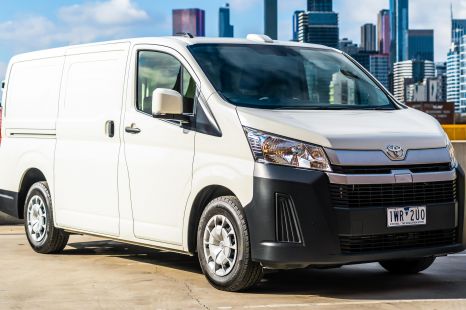

Max Davies
6 Months Ago
This petrol compact French commercial van offers plenty of practicality and usability, but it’s pricey when you add the stuff you want.
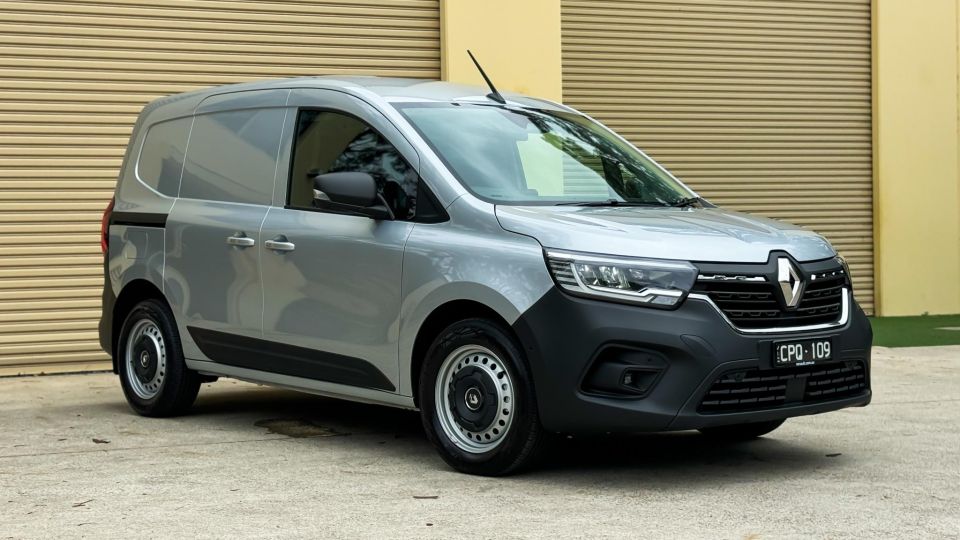


Quickly see how this car stacks up against its competition. Select any benchmark to see more details.
Take advantage of Australia's BIGGEST new car website to find a great deal on a Renault Kangoo.
With all the noise around electric vans, you may have missed the news that Renault has reintroduced the petrol version of its small Kangoo delivery van.

Having launched the electric Kangoo E-Tech earlier in 2024, the ICE version is now available in a couple of different variants with lower pricing, as well as a host of optional extras to customise the van to your needs.
That’s a big win for small businesses, which often need specific configurations in a compact commercial van like this to suit their fleet fitouts. But if you want a few nice features and driver-friendly flourishes they come at a big cost, so when it comes to sorting out the right spec of Kangoo, you really need to pay attention to the option costs and figure out if they make sense for your budget.
This review covers off the need-to-knows, and also the stuff that’ll help you decide whether the Kangoo is going to be right for you.
The current-generation petrol-powered Kangoo was late to Australia, having initially been slated to arrive in 2022, then 2023, before eventually touching down here in 2024.
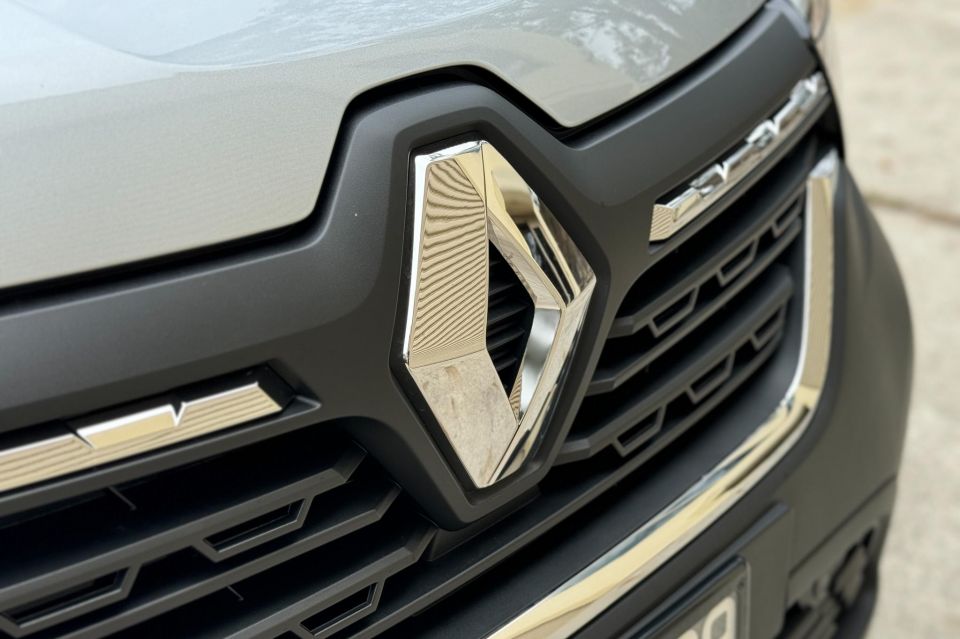
| Model | Price before on-road costs |
|---|---|
| Renault Kangoo SWB manual | $38,990 |
| Renault Kangoo SWB auto | $41,990 |
| Renault Kangoo LWB auto | $43,990 |
And during that time, there’ve been some unprecedented pressures in the market, so pricing has increased substantially compared to the previous-gen combustion-powered version, which was priced from as low as $32,990 drive-away for the long-wheelbase diesel auto!
With a starting price of $38,990 plus on-road costs, the new petrol model is significantly more expensive than the diesel it replaces, but still a lot cheaper than the battery-electric version (priced from $61,990 before on-roads).
There are several petrol-powered variants in the new Kangoo petrol range, including short- and long-wheelbase versions, and even a manual gearbox!
You may find better deals than that if you’re bulk-buying for fleets, and ABN discounts may apply in some instances.
To see how the Renault Kangoo lines up against the competition, check out our comparison tool
What a great cabin design the Kangoo has.
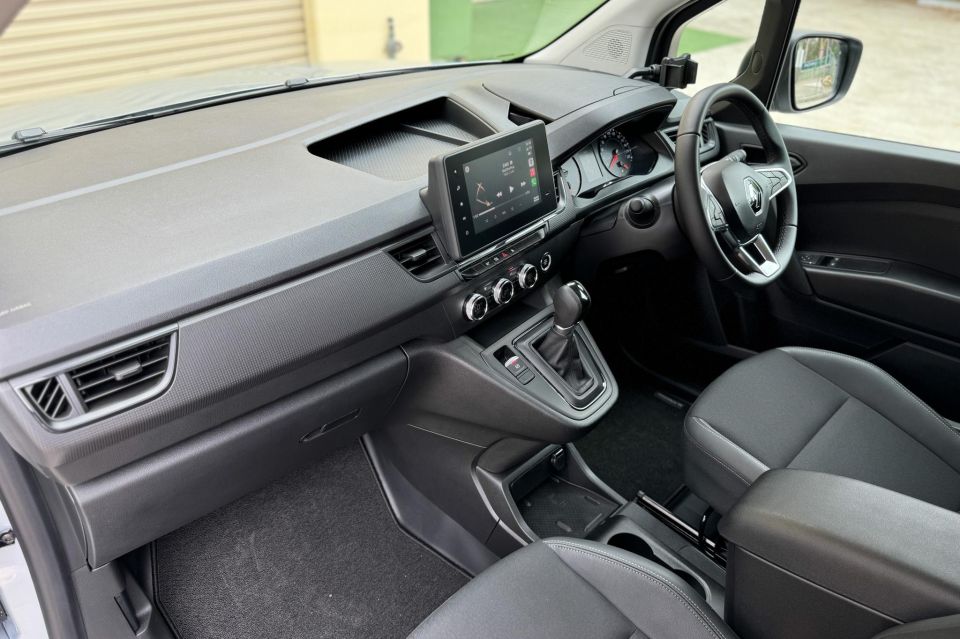
Don’t go thinking that you’ll be in the lap of luxury here, but you will have an abundance of loose-item storage, which is arguably even more important for a little van like this.
The smarts include overhead folder holders, a dash-top storage area large enough for a clipboard, and a covered bin above the instrument binnacle that includes USB and 12-volt charging, which will be ideal to run a dash-cam from, without a mess of cables everywhere.
There are also bottle holders and storage ports in the doors, not to mention a centre storage tray below the shifter. In the tested vehicle, there was also a centre console with armrest and storage, and a wireless phone charger – both of which aren’t standard.
The seats are comfortable and offer a decent amount of adjustment, and after hours behind the wheel I still felt fresh – plus the trim feels pretty hard-wearing, so durability should be good.


That’s part of the functional theme inside – the cabin doesn’t have any soft-plasticky bits, as it’s all designed to be hardy and easy to wipe down, and thankfully the controls are mostly simple to get your head around. Mostly, I say, because there’s a quirky stalk off the steering column to adjust the volume and some other media controls.
But thankfully there are dials and buttons for the climate system (dual-zone as part of the option pack fitted here), and the media screen is mostly a cinch to get to grips with.
There’s Apple CarPlay and Android Auto capability, and FM, AM and DAB digital radio, too, but one odd thing kept happening when I’d get back into the Kangoo – the volume reset itself to a far lower level than when I’d got out. I might have missed something in the settings menu, but it was a bit annoying.
Now, the cargo area.
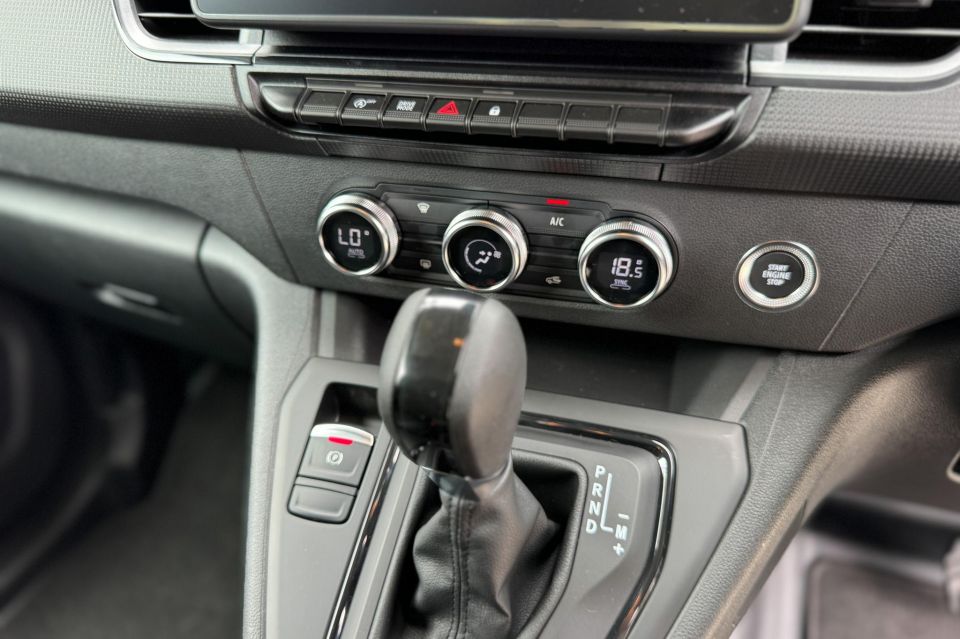

You’ve gotta love that it has dual sliding side doors, barn rear doors, and a bulkhead all as standard. That’s terrific – but just be mindful of how far back that bulkhead sits compared to the floor length, as taller, longer items mightn’t fit in the SWB model.
There are multiple tie-down points for securing a load in place, too, and the cargo zone dimensions and the standard door configuration allow you to forklift in a load if need be.
Just make sure it’s not too heavy, as the payload is on the low side – unless you option the increased payload…
There’s no included cargo mat or flooring – you’ll have to pay more for that – and the sides of the cargo area are exposed metal, too.
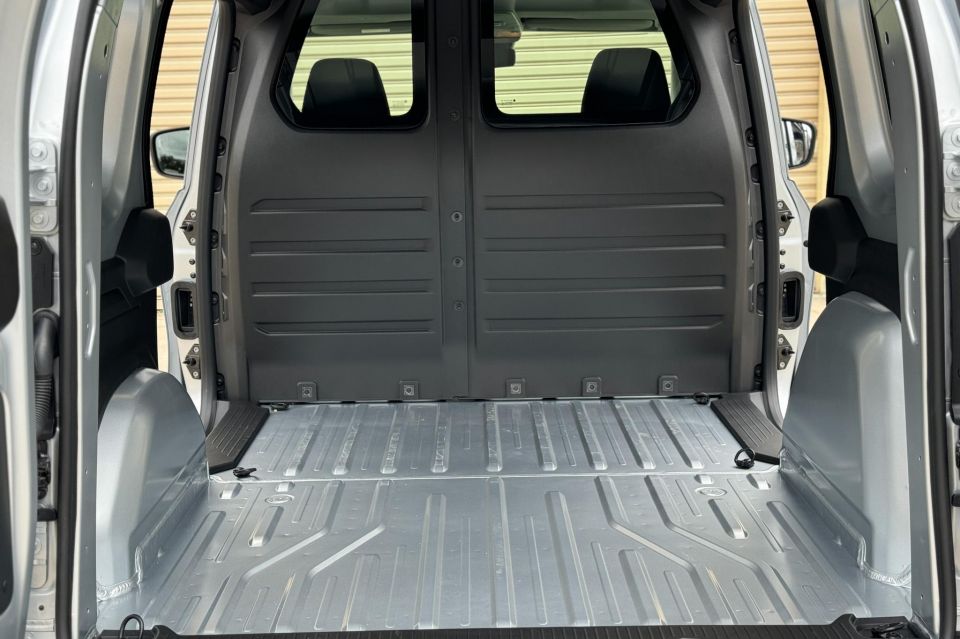
At least you get lighting in the back, and the low ride height means low load-in height, too, making it a bit more manageable at the shop, depot or warehouse.
Furthermore, and unlike the EV model, there’s a full-size spare wheel under the body of the vehicle, too.
| Dimensions | Renault Kangoo SWB auto |
|---|---|
| Length | 4488mm |
| Width | 1859mm |
| Height | 1830mm |
| Wheelbase | 2716mm |
| Cargo capacity | 3.3m |
| Cargo bay length | 1806mm |
| Cargo bay width | 1570mm (1248mm between wheel arches) |
| Cargo bay height | 1115mm |
To see how the Renault Kangoo lines up against the competition, check out our comparison tool
All models in the ICE Kangoo line-up have turbo-petrol engines, but as shown above you can get the short-wheelbase with a six-speed manual if you want it, while the LWB variant comes with a dual-clutch automatic transmission as standard.
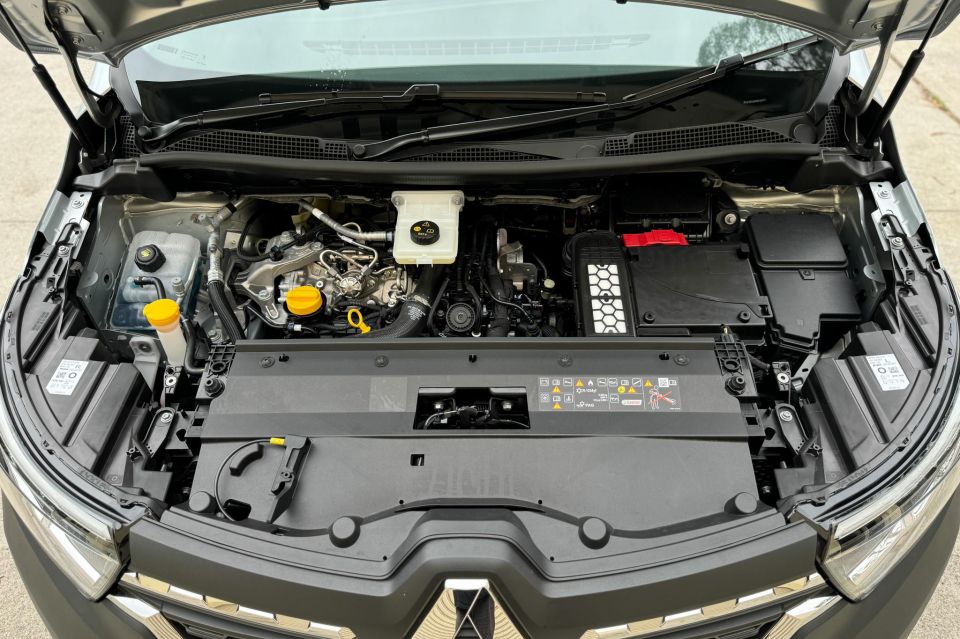
| Specifications | Renault Kangoo SWB auto |
|---|---|
| Engine | 1.3L 4cyl turbo-petrol |
| Power | 96kW @ 5000rpm |
| Torque | 240Nm @ 1600rpm |
| Transmission | 7-speed dual-clutch auto |
| Drive type | FWD |
| Fuel economy (claimed) | 6.2L/100km |
| CO2 emissions (claimed) | 141g/km |
| Fuel tank | 54L |
| Fuel requirement | 95 octane premium unleaded |
| Weight (kerb) | 1453kg |
| Payload | 757kg |
| Braked towing capacity | 1500kg |
| Gross vehicle mass (GVM) | 2210kg |
On test, with a mix of laden and unladen driving, I saw real-world consumption of 7.9L/100km, with urban, highway, freeway and stop-start driving all included. So you could bank on similar, or maybe a smidge higher if you’re running at maximum payload in all instances.
To see how the Renault Kangoo lines up against the competition, check out our comparison tool
There are good and bad things about the way the Kangoo drives.

First, the negatives. The dual-clutch automatic transmission isn’t as good as some of its rivals in the segment. It can be slurry at low speeds, and will – unless you drive the van very deliberately – roll forwards when in reverse, and backwards when in drive.
By very deliberately, I mean making sure that you come to a complete halt, often by keeping one foot on the brake, because it doesn’t have an auto-hold function to do the thinking for you.
That is the biggest quibble, because combined with the engine’s idle stop/start tech and notable turbo lag, you can find that it takes a bit longer than you’d hope to get things moving.
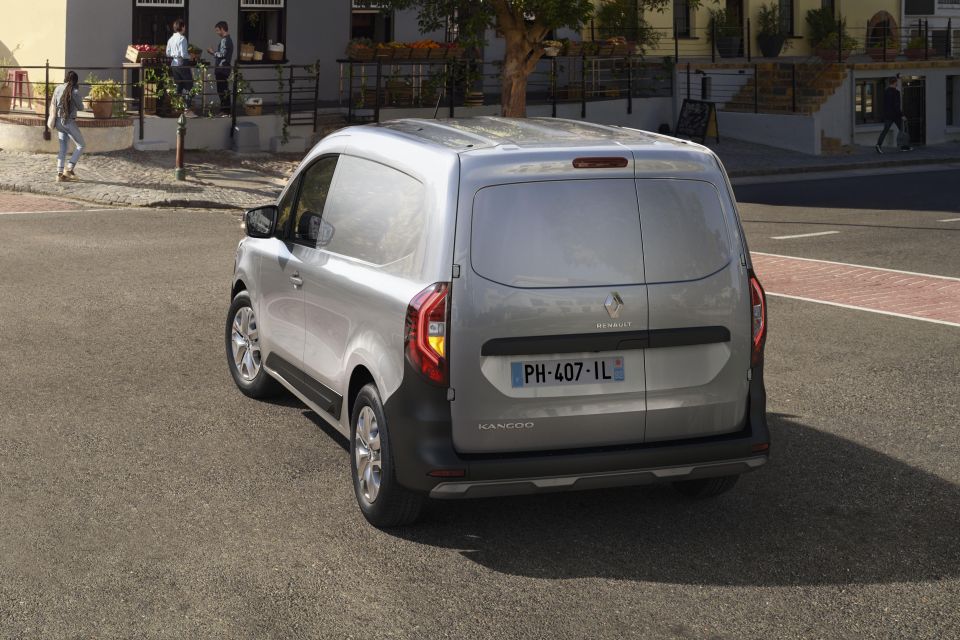
Once above 10km/h it gets along well, though, and there’s certainly enough pulling power in the mid-range. In fact, it hustles once you’re on the move, and at pace the dual-clutch auto is reasonably snappy and well considered in its shifts.
Like most other little vans, it’s pretty fun to drive. The steering is direct and responsive for faster-speed moves, and at lower pace there’s a pleasing predictability for parking.
Likewise, the ride is really comfy, despite being set up for a load. It handles small and large bumps well, and it never feels too clunky or sharp. You can feel a bit more of the road surface through the body of the vehicle, including the nobbles of coarse-chip roads.
In those instances, there is some noticeable road noise intrusion, especially at freeway pace.
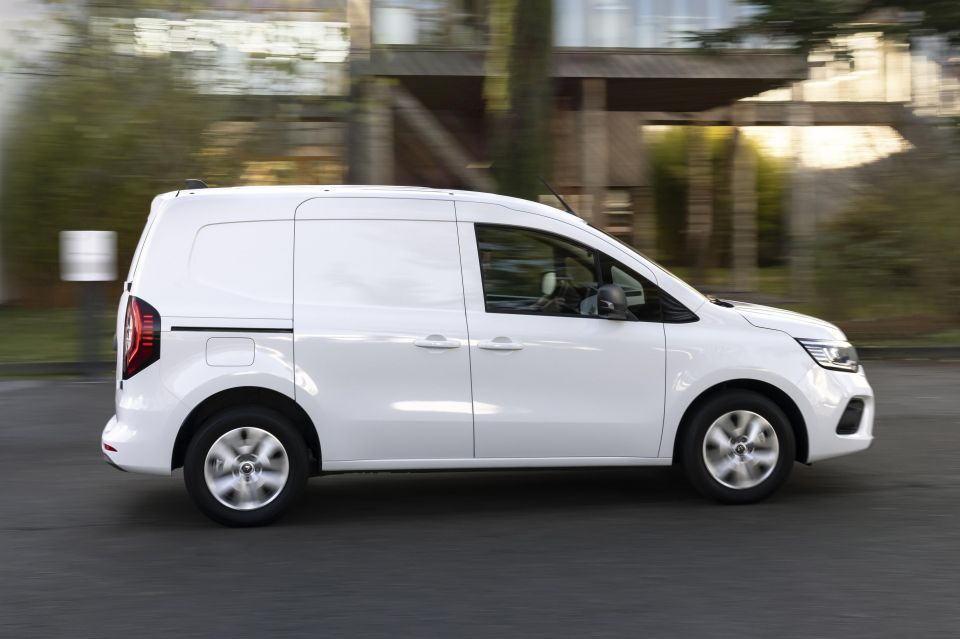
Another concern is the visibility, which is compromised by the bulkhead and barn-doors, which weirdly are mismatched – the bulkhead is split behind the passenger seat, and the tailgate is the opposite, meaning seeing out behind your vehicle is really difficult. There’s an optional digital rear-view mirror, which would certainly help.
The side mirrors are decent, and there is an outer section of the glass that is slightly more convex to give you a better outer-angle view. There’s blind-spot monitoring, but it’s optional – and it shouldn’t be, because the vision is more compromised in this vehicle than in others.
To see how the Renault Kangoo lines up against the competition, check out our comparison tool
The Kangoo’s standard equipment list looks pretty generous until you see the options list.




Renault Kangoo highlights:
To see how the Renault Kangoo lines up against the competition, check out our comparison tool
As mentioned, you might need to consider these additional cost option packages when deciding on your Kangoo.


Business Pack ($3200) adds:
Trade Pack ($1200) adds:
Peace of Mind Pack ($1500) adds:
The vehicle tested here is the short-wheelbase auto with the Business Pack and Peace of Mind Pack, bringing its as-tested total to $46,690 before on-roads – a lot of cash for a little petrol van.
Further standalone options include:
You can also remove the driver’s side sliding door for no extra cost.
To see how the Renault Kangoo lines up against the competition, check out our comparison tool
ANCAP continues to state that the current Renault Kangoo is ‘Unrated’, but the commercial van model achieved a Gold Rating in Euro NCAP van testing, which is the second-best available score behind Platinum.
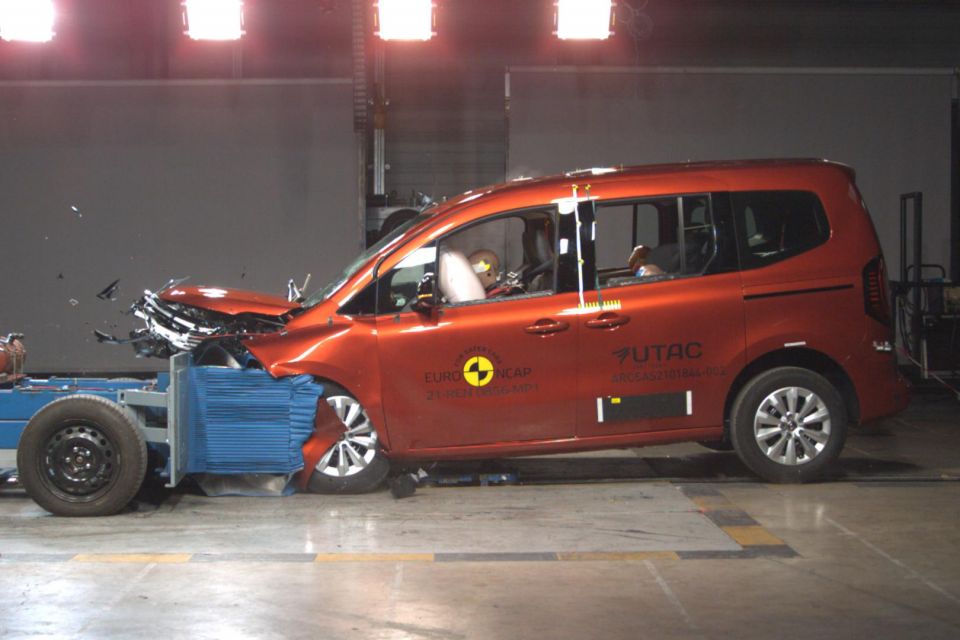
Find out more about the car
The passenger-ready people-mover variant sold in Europe scored four stars in 2021, according to Euro NCAP testing.
Standard safety equipment includes:
However, as noted above, you must pay more to get useable and desirable things like adaptive cruise control, driver attention alert and traffic sign recognition.
What’s ruder is that you need to also pay more for blind-spot monitoring, as well as front and side parking sensors – which should be standard in a vision-compromised urban-focused van like this.
To see how the Renault Kangoo lines up against the competition, check out our comparison tool
The Renault Kangoo is backed by a five-year, 200,000km warranty, which should set the minds of business owners at ease.
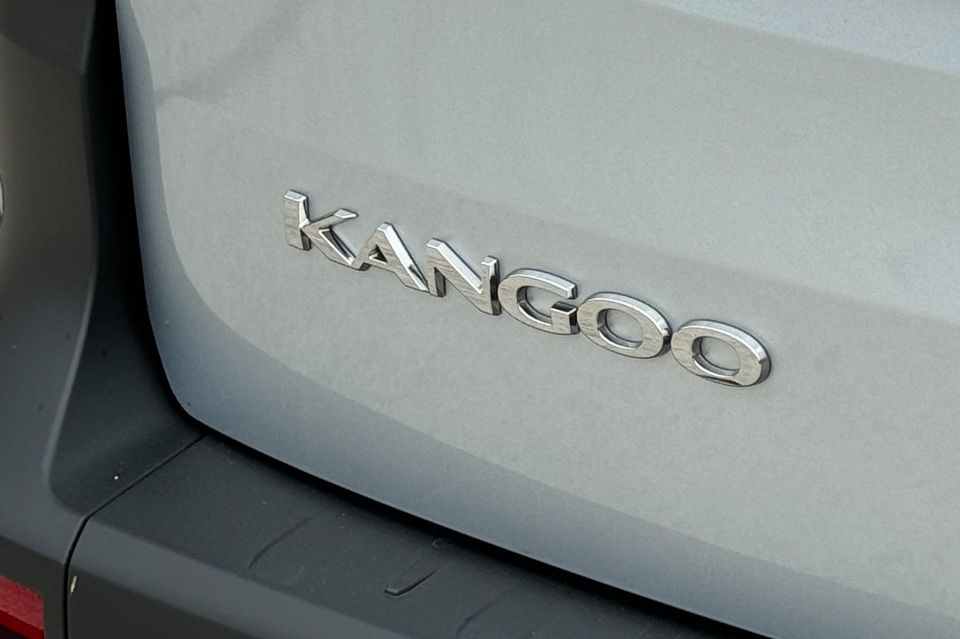
There’s also a five-year servicing plan, with 12-month/15,000km intervals between visits to the workshop.
For the petrol Kangoo, the average cost per service is $473 over the five-year/75,000km maintenance plan, and it also includes most consumables included like filters, fluids and spark plugs.
You get five years of roadside assistance too.
To see how the Renault Kangoo lines up against the competition, check out our comparison tool
In some ways the Renault Kangoo is a winner. It’s a well designed thing, with practical cabin useability and a mostly easy to drive nature.

But the dual-clutch auto can be annoying, and the ambitious asking price and array of optional extras make it less appealing than it could otherwise be.
If you can get a good fleet deal, it could be worth a look.
Interested in buying a Renault Kangoo? Get in touch with one of CarExpert’s trusted dealers here
Click the images for the full gallery
Take advantage of Australia's BIGGEST new car website to find a great deal on a Renault Kangoo.
Discover and compare similar models
Matt has more than a decade of experience in automotive journalism, and loves exploring the pros and cons of new cars, delving into deep-dive industry stories, and going for a drive just for the fun of it.


Max Davies
6 Months Ago
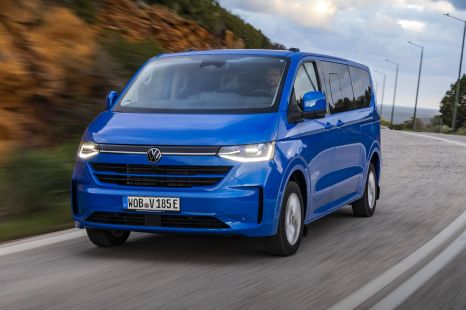

Dave Humphreys
4 Months Ago
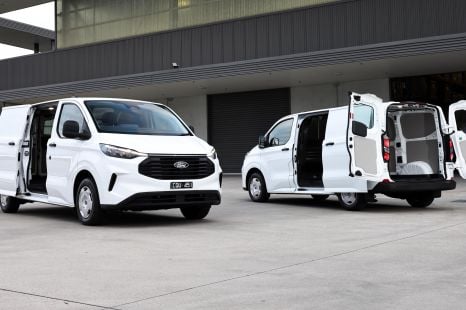

Max Davies
4 Months Ago
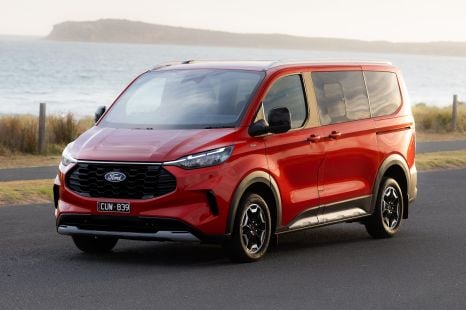

Josh Nevett
4 Months Ago
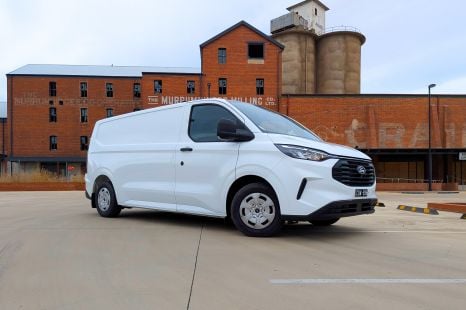

William Stopford
2 Months Ago
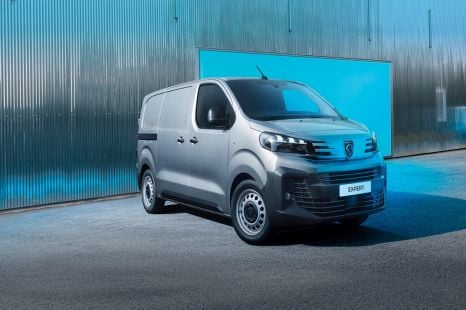

Damion Smy
2 Months Ago